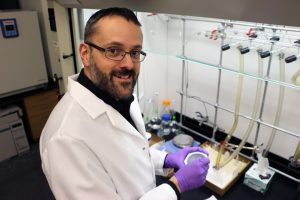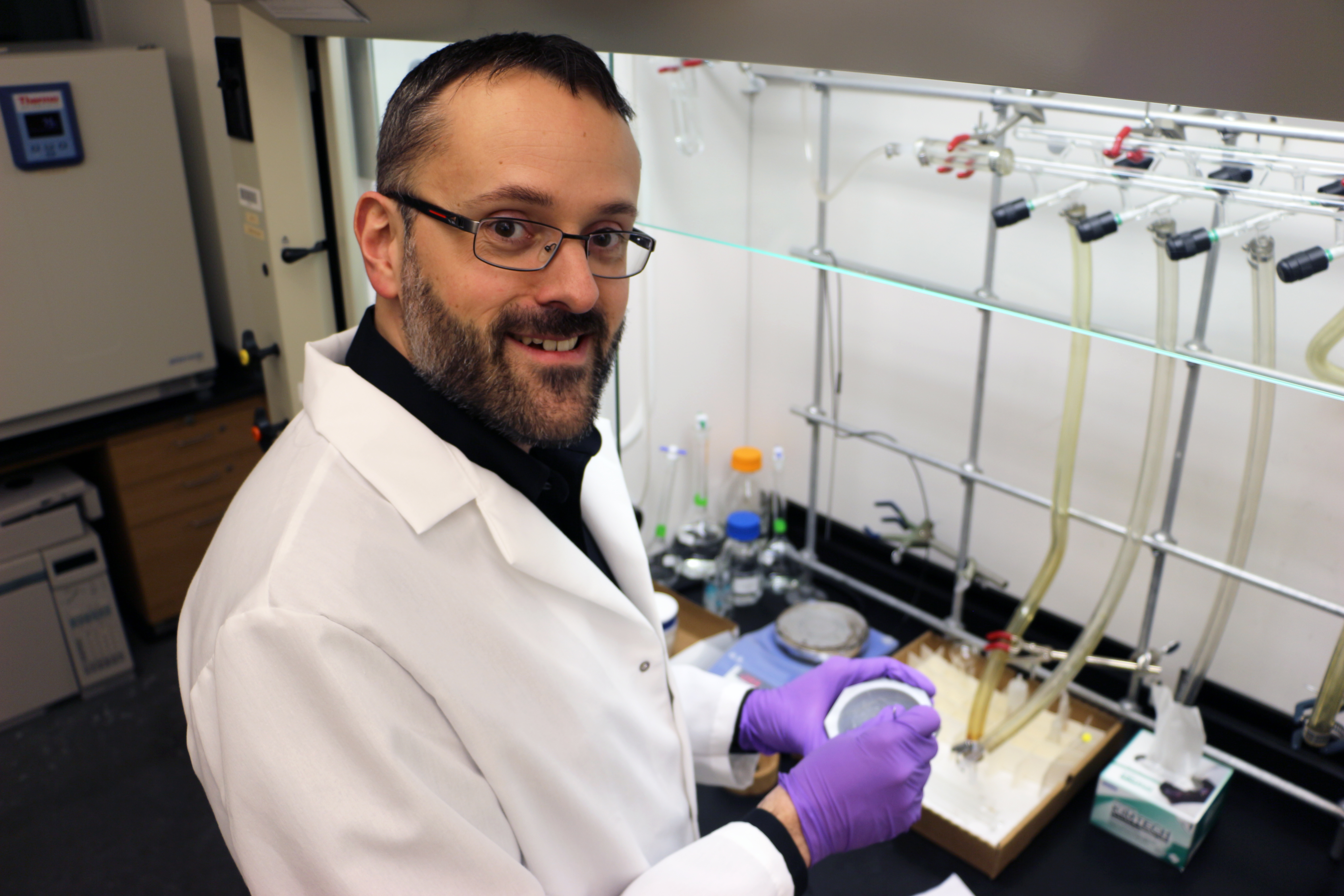
CBE’s Jean-Philippe Tessonnier adds to biomass conversion research at Iowa State
When Jean-Philippe Tessonnier began college at the University of Strasbourg in France, he decided to major in chemistry. As he progressed further into the bachelor’s program, Tessonnier realized that he wanted to apply the concepts learned in the classroom to industrially relevant problems. This led him to begin working with Professor Jean Sommer’s research group, studying catalyst design for a BP-sponsored project. As the summer concluded, he knew this was the path he wanted to follow.
Following his undergraduate career, Tessonnier worked with Dr. Marc Ledoux on a collaborative project with Conoco. “It was very exciting to work with a major energy company in an academic environment. We were competing with teams in the U.S., China and Japan to develop catalysts that convert natural gas to liquid aromatics.”
After receiving his Ph.D. in chemistry and catalysis, Tessonnier began researching at the Fritz Haber Institute of the Max Planck Society in Germany, where he worked with Professor Robert Schlögl on carbon nanomaterials for applications in catalysis, notably for biomass conversion reactions.
This was where he first interacted with Iowa State University. Both organizations were participating in an international collaboration through the National Science Foundation Partnership for International Research and Education (PIRE).
Having gained some insight into what chemical engineering is all about, Tessonnier seized the opportunity to work as a visiting researcher at the University of Delaware. There, he joined Professor Mark Barteau in the Department of Chemical and Biomolecular Engineering.
Tessonnier later applied to Iowa State, already knowing that it would be a good fit. “Iowa State has unique expertise in biomass conversion, and with the U.S. Department of Energy Ames Laboratory on campus, it is the best place to research novel catalytic materials for the production of biofuels and bio-based chemicals.”
Tessonnier joined the CBE department in June 2012 and is now an assistant professor and Carol and Jack Johnson Faculty Fellow.
He says his research is a little different from his peers as it involves more materials chemistry. “One of the key challenges as we transition from petroleum to biomass for the production of fuels and chemicals is that the chemistry of these two feedstocks is completely different. We need new catalysts and new processes to convert biomass with high yields. Sometimes, the best solution consists in combining biological and chemical processes.” To address these challenges, Tessonnier synthesizes nanostructured carbon catalysts and explores the chemistry of Earth-abundant metal electrocatalysts.
In addition to research, Tessonnier enjoys being a professor because of student interaction. “It’s exciting to interact with chemical engineering students because they see that what we do in class will impact their lives and careers. There is a strong motivation to use the fundamental knowledge and skills they learn in the classroom to address challenges such as producing clean energy and at the same time help grow the economy.”
